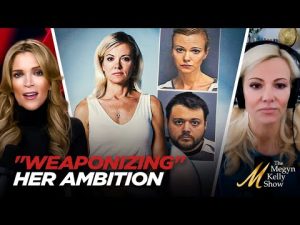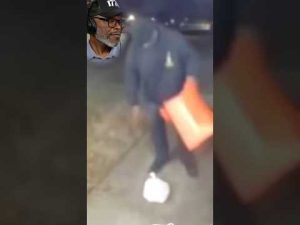In a remarkable turn of events that has captivated the nation, a full pardon has been granted to several defendants involved in the January 6th Capitol unrest. This unexpected news, unveiled within hours of a new president taking office, has sparked conversations across the political landscape. One of the individuals benefiting from this clemency is Brandon Straka, a man who has faced significant challenges since that fateful day in Washington, D.C.
Straka recently disclosed that he had received a full, complete, and unconditional pardon, which has allowed him to finally speak up about his experiences on January 6th. For the first time in four years, he expressed gratitude towards the former president for lifting the heavy burden he had been carrying. Straka recounted his time that day, insisting that he spent just eight minutes on the east side of the Capitol where no rioting took place. His video, which he recorded during that brief period, shows no signs of violence or disorder. The doors were already open when he arrived, and he simply filmed the scene around him.
However, Straka’s experience took a dramatic turn when the FBI knocked on his door weeks later. Despite having clear evidence of his innocence, Straka faced multiple felony charges. The pressure of the situation led him to accept a plea deal, which came with conditions that he felt forced him to distort the truth about his actions. He claimed that he was made to agree to false statements about encouraging others to enter the Capitol and incite violence—allegations he vehemently denied.
Despite the relief that the pardon provides, Straka highlights the extensive fallout from the accusations against him. He described a life turned upside down, noting how he had been placed on a terrorism watch list under the Biden administration. This status made flying nearly impossible, as he faced hours of additional screening at airports and constant scrutiny. The repercussions didn’t stop there; Straka and others like him found themselves banned from various online platforms and financial services, making it exceedingly difficult to conduct everyday business.
Now that he has been pardoned, Straka is left reflecting on what this means for his future. While the pardon restores some sense of freedom, it does not erase the challenges he faced while navigating the consequences of his earlier legal troubles. While pursuing justice against the government and tech companies involved in his ordeal might seem daunting, Straka appears undeterred. This new chapter in his life evokes a sense of tenacity and resilience, underscoring his commitment to reclaim his narrative after enduring what he describes as a significant injustice.
As the nation processes this news, stories like Straka’s serve as a reminder of the complexities surrounding the events of January 6th and their aftermath. The discussions surrounding these pardons are bound to continue, providing insight into the lives of those affected and the broader implications for American society. Though Straka’s journey is far from over, his newfound voice offers a glimmer of hope for those who shared similar experiences and are seeking justice in the face of adversity.







